
Time Stands Still is a 1982 Hungarian film about two brothers and the woman they both love, their families, teachers, and friends, all living in Budapest in 1963, following the uprising of 1956. It stars István Znamenák, Henrik Pauer, Sándor Sőth, Anikó Iván and Lajos Őze and was directed by Péter Gothár. Popular among audience and critics, Gothár's film won the Award of the Youth at Cannes, the New York Film Critics Circle Award for Best Foreign Language Film and the award for Best Director at the Tokyo International Film Festival. The film was also selected as the Hungarian entry for the Best Foreign Language Film at the 55th Academy Awards, but was not accepted as a nominee. The film was chosen to be part of the New Budapest Twelve, a list of Hungarian films considered the best in 2000.
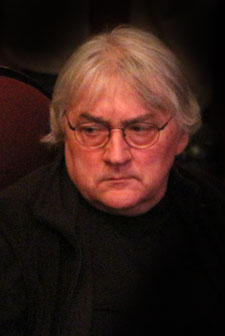
Lajos Koltai, ASC, HSC, is a Hungarian cinematographer and film director best known for his work with legendary Hungarian director István Szabó, and Italian filmmaker Giuseppe Tornatore. He was nominated for an Academy Award in 2000 for his work on the film Malèna.

Mephisto is a 1981 German political drama film co-written and directed by István Szabó, and based on the novel of the same name by Klaus Mann. It stars Klaus Maria Brandauer as a German stage actor who finds unexpected success and mixed blessings in the popularity of his performance in a Faustian play as the Nazis take power in pre-WWII Germany. As his associates and friends flee or are forced underground by the Nazi regime, the popularity of his character ends up superseding his own existence, until he finds that his best performance is keeping up appearances for his Nazi patrons.

Adoption is a 1975 Hungarian drama film directed by Márta Mészáros. It was entered into the 25th Berlin International Film Festival, where it won the Golden Bear. The film was also selected as the Hungarian entry for the Best Foreign Language Film at the 48th Academy Awards, but was not accepted as a nominee.
Confidence is a 1980 Hungarian film directed by István Szabó, set in the waning days of World War II. It chronicles the story of two resistance members who are compelled to assume the roles of husband and wife in order to evade detection by the Nazis, despite being married to others. The film garnered critical acclaim, earning Szabó the Silver Bear for Best Director at the 30th Berlin International Film Festival and receiving a nomination for the Academy Award for Best Foreign Language Film at the 53rd Academy Awards.
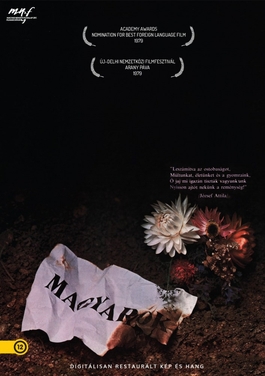
Hungarians is a 1978 Hungarian drama film directed by Zoltán Fábri. It was nominated for the Academy Award for Best Foreign Language Film at the 51st Academy Awards.
The Fifth Seal is a 1976 film by Hungarian director Zoltán Fábri based on the 1963 novel of the same name by Hungarian author Ferenc Sánta. It won the Golden Prize at the 10th Moscow International Film Festival and it was entered into the 27th Berlin International Film Festival. The film was also selected as the Hungarian entry for the Best Foreign Language Film at the 49th Academy Awards, but was not accepted as a nominee.The film is considered as one of the best films of Hungarian and world cinema.
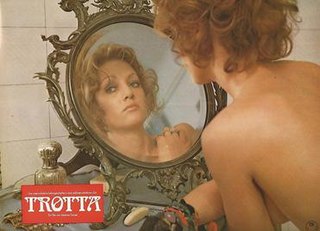
Trotta is a 1971 West German film directed by Johannes Schaaf. It is based on the 1938 novel Die Kapuzinergruft by Austrian author Joseph Roth. It was chosen as West Germany's official submission to the 45th Academy Awards for Best Foreign Language Film, but did not receive a nomination. It was also entered into the 1972 Cannes Film Festival.
The Upthrown Stone is a 1969 Hungarian drama film directed by Sándor Sára. It was listed to compete at the 1968 Cannes Film Festival, but the festival was cancelled due to the events of May 1968 in France. The film was also selected as the Hungarian entry for the Best Foreign Language Film at the 42nd Academy Awards, but was not accepted as a nominee.
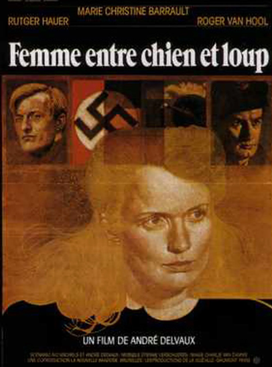
Woman Between Wolf and Dog, also known as Woman in a Twilight Garden is a 1979 Belgian-French drama film directed by André Delvaux. It was entered into the 1979 Cannes Film Festival and received the André Cavens Award for Best Film by the Belgian Film Critics Association (UCC). The film was also selected as the Belgian entry for the Best Foreign Language Film at the 52nd Academy Awards, but was not accepted as a nominee.
The Witman Boys is a 1997 Hungarian drama film co-written and directed by János Szász. It was screened in the Un Certain Regard section at the 1997 Cannes Film Festival. At the 20th Moscow International Film Festival the film won the FIPRESCI Prize and Szász won the Silver St. George for Best Director. The film was selected as the Hungarian entry for the Best Foreign Language Film at the 70th Academy Awards, but was not accepted as a nominee.
Good Evening, Mr. Wallenberg is a 1990 film about Swedish World War II diplomat Raoul Wallenberg, who was instrumental in saving the lives of thousands of Hungarian Jews from the Holocaust. He is played by Stellan Skarsgård.
Diary for My Lovers is a 1987 Hungarian drama film directed by Márta Mészáros. It was entered into the 37th Berlin International Film Festival, where it won the Silver Bear for outstanding single achievement. The film was selected as the Hungarian entry for the Best Foreign Language Film at the 60th Academy Awards, but was not accepted as a nominee. It is the second film of the autobiographical trilogy, preceded by Diary for My Children and followed by Diary for My Father and Mother. The film contains documentary footage integrated with the story.
Sweet Emma, Dear Böbe is a 1992 Hungarian drama film co-written and directed by István Szabó. It was entered into the 42nd Berlin International Film Festival where it won the Silver Bear - Special Jury Prize. The film was selected as the Hungarian entry for the Best Foreign Language Film at the 65th Academy Awards, but was not accepted as a nominee.
Father is a 1966 Hungarian drama film written and directed by István Szabó. The film is a coming of age story. The main character copes with the childhood loss of his father against the backdrop of the Hungarian Revolution of 1956 and memories of the earlier dictatorship of the Arrow Cross Party modelled on the German Nazi Party.

Tales from the Vienna Woods is a 1979 Austrian-German drama film directed by Maximilian Schell. The film was adapted from the play by Ödön von Horvath. It was selected as the Austrian entry for the Best Foreign Language Film at the 52nd Academy Awards, but was not accepted as a nominee. It was the final film for veteran actress Lil Dagover who started her film career in the 1910s.

Son of Saul is a 2015 Hungarian historical tragedy film directed by László Nemes, in his feature directorial debut, and co-written by Nemes and Clara Royer. It is set in the Auschwitz concentration camp during World War II, and follows a day-and-a-half in the life of Saul Ausländer, a Hungarian member of the Sonderkommando.
We Never Die is a 1993 Hungarian comedy film written by, directed and starring Róbert Koltai. The film was selected as the Hungarian entry for the Best Foreign Language Film at the 66th Academy Awards, but was not accepted as a nominee.
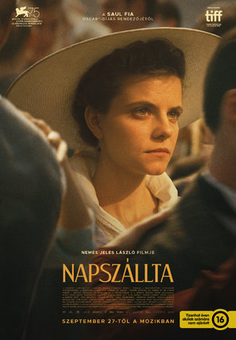
Sunset is a 2018 Hungarian historical drama film co-written and directed by László Nemes. It is set in Budapest before World War I, starring newcomer Juli Jakab and Vlad Ivanov. It premiered at the 75th Venice International Film Festival and was also screened at the 2018 Toronto International Film Festival. It was selected as the Hungarian entry for the Best Foreign Language Film at the 91st Academy Awards, but it was not nominated.










